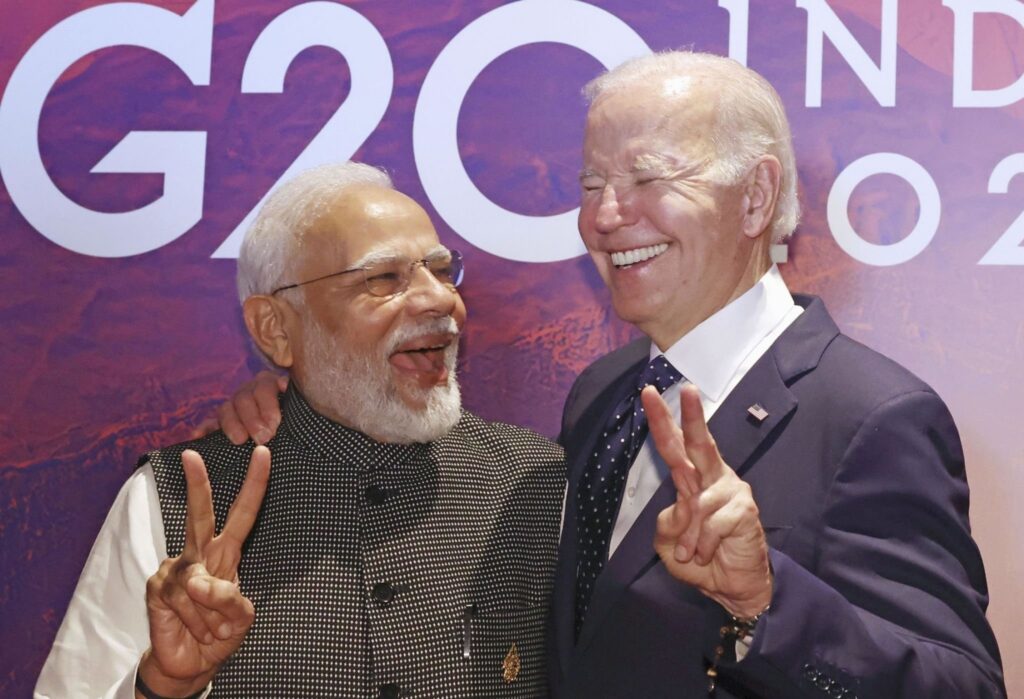The Indian Prime Minister’s arrival could enhance the bonds with the United States but also brings forth certain sensitive matters.
Indian Prime Minister Narendra Modi is set to embark on his inaugural state visit to the White House on June 22, 2023. This occasion could potentially shape the long-term relationship between India and the United States.
Modi, 72, assumed office as the Prime Minister in 2014 and secured re-election in 2019. Throughout his tenure, he has gained global recognition for his unwavering commitment to Hindu nationalism and his authoritative leadership style characterized by firm control.
In recent years, particularly following Prime Minister Modi’s re-election in 2019, numerous scholars and analysts have expressed concerns about democracy erosion in India. This apprehension stems, in part, from the implementation of new regulations and government pressure aimed at censoring critical voices within the media and curtailing free speech.
State visit invitations from the United States are not extended routinely to world leaders. Besides, Modi has been granted the exceptional opportunity to address Congress, an honor rarely bestowed upon visiting foreign dignitaries.
However, from the political scientist’s perspective, the United States is actively engaging with India due to its strategic importance as a counterweight to China’s expansionist policies in Asia. The U.S. seeks to foster a robust partnership with India to establish a formidable alliance in the face of geopolitical challenges.
Who is Narendra Modi?
Narendra Modi grew up in Gujarat, a western state in India, and his upbringing was marked by relatively modest circumstances. Having forged a lengthy career in local and state politics, he earned a reputation as a resolute and capable politician.
As a longstanding member of the Rashtriya Swayamsevak Sangh, a Hindu political organization known for its militancy, Modi has been widely recognized by both Indian political observers and foreign analysts for his staunch Hindu nationalist ideology.
While Hinduism stands as the predominant religion in India, the country also embraces diverse faiths such as Christianity, Sikhism, Buddhism, and Jainism.
In recent years, there has been a surge in Hindu nationalism, fueled by the belief of some individuals that India should primarily be a Hindu nation, and its policies ought to reflect this notion. Sadly, this rise in Hindu nationalism has at times manifested in acts of violence.
During Modi’s tenure as the chief minister of Gujarat in February 2002, a riot orchestrated by Hindu extremists resulted in the tragic deaths of over 1,000 individuals, predominantly Muslims. Modi has consistently denied any involvement in this incident, although the police have indicated that the violence occurred with the tacit approval of the state government, including Modi.
Therefore, the United States denied Modi a visitor’s visa in 2005.
Nevertheless, Modi has garnered widespread popularity as the Prime Minister, boasting an approval rating of 78% as of February 2023.
US-India Ties– Defense Cooperation and Diplomatic Challenges
Under Prime Minister Modi’s leadership, the relationship between the United States and India has witnessed significant growth, particularly in the areas of security and defense cooperation.
Over the past few years, India has made substantial purchases of advanced weaponry from the United States. Additionally, three crucial defense agreements have been signed between the two nations, leading defense analysts to anticipate a notable enhancement in military collaboration.
India’s involvement in the Quadrilateral Security Dialogue, an informal initiative comprising the US, Japan, Australia, and India, has also seen some progress, although with occasional setbacks. The group regularly convenes to discuss security, trade, and even conducts joint military exercises.
China’s increasing influence in Asia remains a shared concern among these nations. Despite India’s existing trade relationship with China, security issues, particularly those about the disputed Himalayan border, have strained diplomatic ties between the two countries for nearly a decade.
However, a significant point of contention between the U.S. and India arises from India’s restrained response to Russia’s invasion of Ukraine in February 2022. India has been hesitant to publicly criticize Russia due to its heavy reliance on Moscow for weapons technology. While Prime Minister Modi maintains regular communication with Russian President Vladimir Putin, he has refrained from condemning the invasion, only emphasizing that now is “not an era for war.”
Questions and Considerations Surrounding Narendra Modi State Visit
Biden-Modi state visit holds significant implications for the emerging U.S.-India partnership and its potential role in countering China’s expanding influence in Asia. The visit also carries electoral implications for Modi, who is seeking reelection in 2024.
During their meeting, Biden and Modi are expected to discuss strategies for further strengthening bilateral relations, addressing China’s influence, and navigating the sensitive issue of India’s stance on the Ukraine crisis.
The United States aims to offer armed drones to India and potentially extend GE jet engine manufacturing technology, bolstering India’s defense capabilities and reducing reliance on Russian military technology.
However, concerns persist regarding India’s democratic principles and the treatment of minority groups, particularly the increase in attacks on Muslims by Hindu extremist groups. The Modi administration has faced international scrutiny for its restrictions on press freedom, attempts to curtail nonprofit organizations, and undermining of political opposition.
Given the complexity of issues related to democracy and the Ukraine crisis, these matters could impede political agreements and hinder closer ties between the United States and India.

